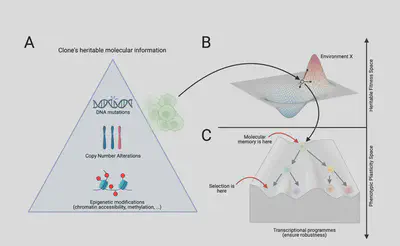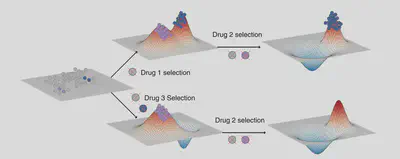Design evolutionary-informed treatments against cancer drug resistance
Epigenetic-driven drug resistance and plasticity
We set up a new experimental system based on patient-derived organoids to measure the predictability and causes of drug resistance ex vivo. We found that in the context of targeted therapies, drug resistance evolution was highly repeatable and predictable, and involved heritable epigenetic changes. Moreover, different subclones responded differently to distinct drugs, supporting the use of evolutionary therapies to control drug resistance (Oliveira, Milite, Fernandez-Mateos et al. 2025, Cancer Research).

Evolutionary steering and collateral drug sensitivity
In (Acar, Nichol et al. 2020, Nature Communications) we present a novel approach for evolutionary steering based on a combination of single-cell barcoding, very large populations of 10^8-10^9 cells grown without re-plating, longitudinal non-destructive monitoring of cancer clones, and mathematical modelling of tumour evolution. We demonstrate evolutionary steering in non-small cell lung cancer, showing that it allows shifting the clonal composition of a tumour in our favour, leading to collateral drug sensitivity and proliferative fitness costs. –>
